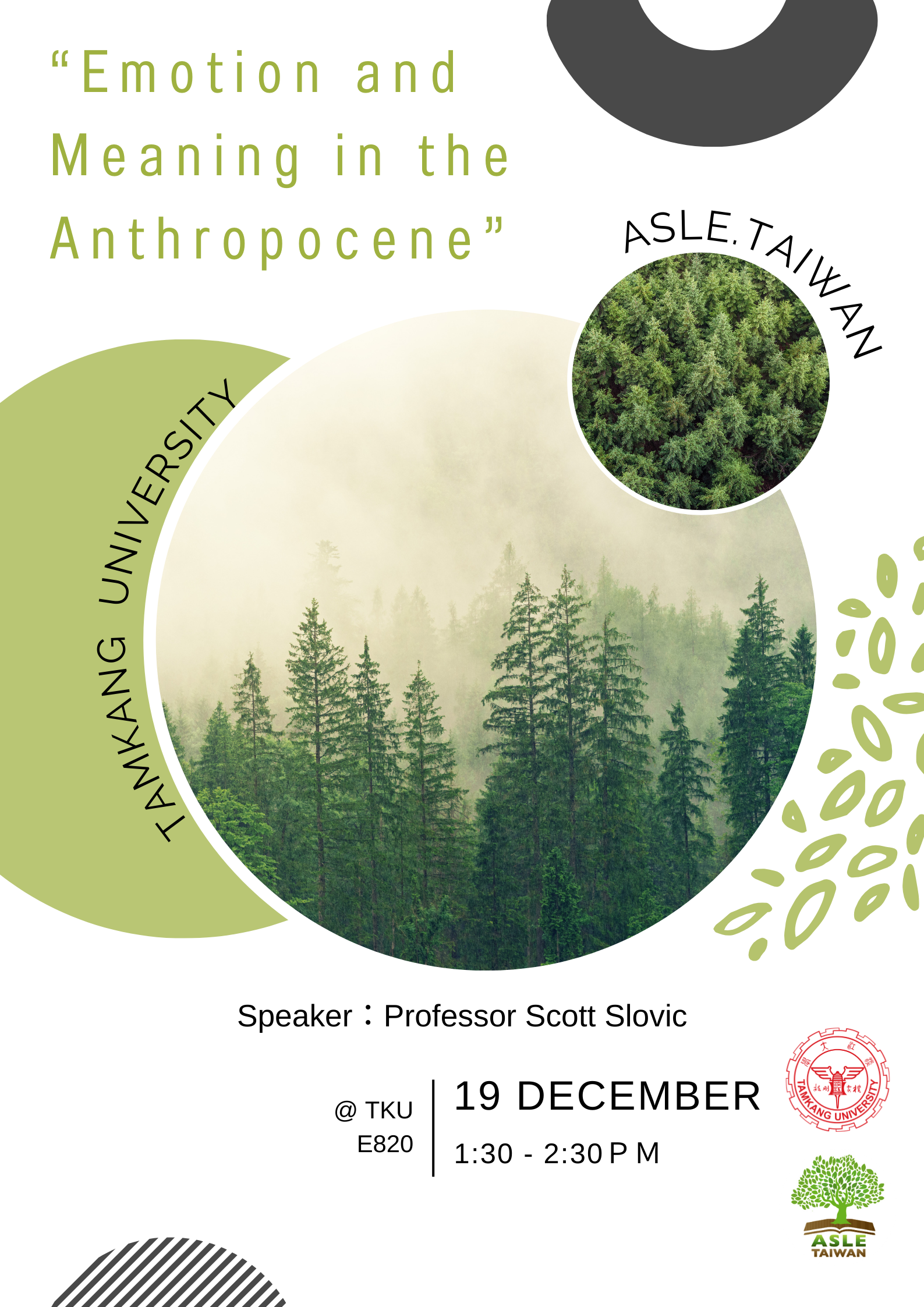
【學術演講】Professor Scott Slovic, “Emotion and Meaning in the Anthropocene”

Psychologists have learned in recent decades that there are various cognitive reasons for our collective inaction in the face of urgent humanitarian and environmental crises, ranging from the struggles of refugees to the daunting specter of global climate change. At Decision Research, an independent research institute in Eugene, Oregon, we refer to this complex of cognitive paradigms that describe human insensitivity to vital information as the Arithmetic of Compassion, alluding to a line from Polish author Zbigniew Herbert’s poem “Mr. Cogito Reads the Newspaper.” Our failure to respond emotionally to information about serious crises is fundamentally linked to the human insensitivity to numerical information, especially to quantities of victims exceeding very small numbers—what this means is that the more significant a crisis is (i.e., the more human or nonhuman victims it involves), the less we care. Despite our worrisome tendency to be insensitive to information and desperately slow to respond to crises, we have many skilled communicators—journalists, literary artists, photographers, filmmakers, and others—who have developed strategies for piercing our emotional shells and investing potentially numbing statistics and technical descriptions with meaningful poignancy. The field of affective ecocriticism tends to focus on societal paralysis caused by eco-anxiety as a reason for our ineffective response to crises such as global climate change; in this lecture, I will argue that we need meaningful, energizing emotional responses to warnings about climate change and other environmental challenges.